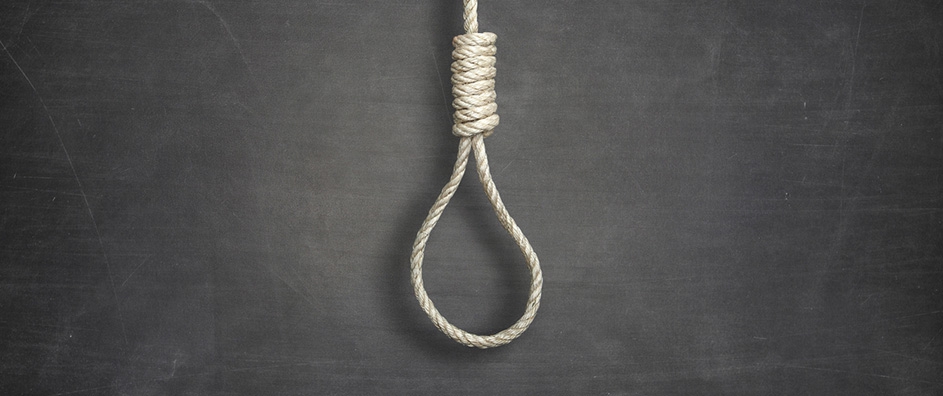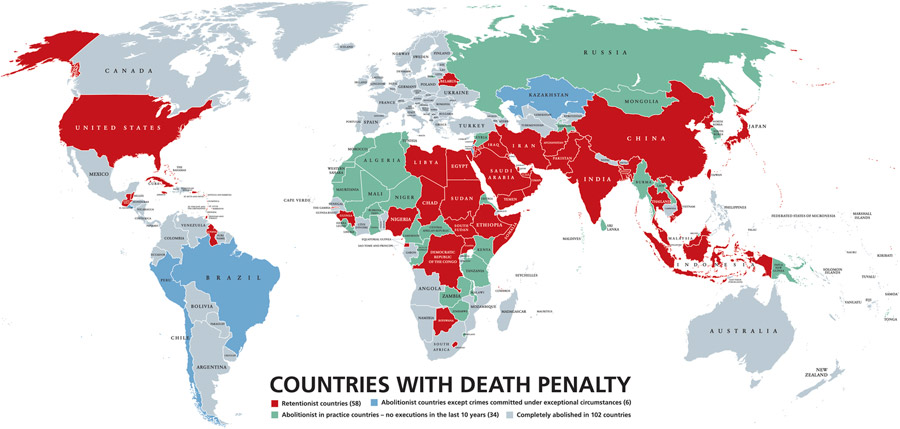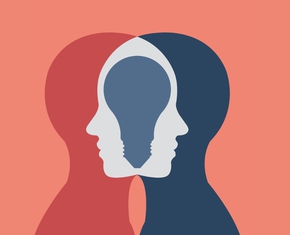The views expressed in our content reflect individual perspectives and do not represent the authoritative views of the Baha'i Faith.
An execution is not simply death. It is just as different from the privation of life as a concentration camp is from prison. … For there to be an equivalency, the death penalty would have to punish a criminal who had warned his victim of the date at which he would inflict a horrible death on him and who, from that moment onward, had confined him at his mercy for months. Such a monster is not encountered in private life. – Albert Camus, Reflections on the Guillotine, Resistance, Rebellion & Death.
A few weeks ago one of our faithful, inquiring readers at BahaiTeachings wrote: “How do Baha’i followers justify the death penalty? It is a huge sticking point with your practice. Just my point of view and looking for an answer.”
By sheer coincidence, when he sent us his comment, I had already begun writing this series of essays on the death penalty; and on that exact same day I voted by mail in the general election here in California. In this election, every voter in my state has to make a daunting choice about capital punishment, and must decide between two non-partisan ballot initiatives regarding the death penalty.
Proposition 62 repeals California’s death penalty. Proposition 66 seeks to keep and bolster the death penalty by speeding up the typically lengthy capital case appeal process in the courts. If Proposition 62 passes, the State of California will lose its right to carry out executions. If Proposition 66 passes, the State will execute more people. I had to decide, as did all of California’s voters, whether I wanted to stop or speed up capital punishment for the 700+ people currently on Death Row in my state.
Consider that stark choice for a moment. How would you vote? Few elections actually result in immediate life or death decisions. But in this election, and in many similar capital punishment referendums around the world, your vote on the death penalty could actually result in someone’s execution—or save that person’s life.
How do you feel about this tough moral question on the death penalty? Some feel that capital punishment is necessary for justice, closure and deterrence; while others feel that it amounts to needlessly cruel and unusual punishment—and that the state should never take the role of a murderer.
Global opinion polling on the death penalty shows that capital punishment tends to polarize people. The Gallup Organization, which has polled many different countries on the question, finds support for and opposition to the death penalty at roughly equal levels in many if not most nations. One non-profit group, The Death Penalty Information Center, regularly collects and collates various polls from different countries and reports their results. Those polls indicate that a slight majority (52%) of Russians, for instance, support capital punishment; while two-thirds of Australians favor life imprisonment for the crime of murder rather than the death penalty. In Great Britain, death penalty support has recently fallen to below 50% for the first time ever. In the United States, according to the Pew Research Center, about half of all Americans (49%) support capital punishment, while 42% oppose it—the lowest level of support in more than four decades.
Most of the world’s countries have abolished capital punishment, either in practice or by law. Fifty-eight countries still utilize the death penalty; while 134 countries have made it illegal or no longer use it in practice. Six countries have retained it only for special circumstances like war crimes and genocide.
The United Nations has put forward the Second Optional Protocol to the International Convention on Civil and Political Rights, which calls for a moratorium on capital punishment—and 81 countries have ratified it. The European Union prohibits the death penalty, as does the Council of Europe. Only two of the world’s developed democratic governments—the United States and Japan—still allow it; and 19 of America’s 50 states outlaw the death penalty; soon to be 20 states if California’s Proposition 62 passes.
From a worldwide perspective, surveys show, support for and use of capital punishment has declined during the past five decades. That long-term global trend, however, only affects 40% of the planet’s population—since 60% still live in death penalty nations like China, Japan, North Korea and the U.S.
So how do the Baha’i teachings deal with punishment for the most heinous crimes—do they prescribe the death penalty or allow for life imprisonment? The answer is both:
The law of Baha’u’llah prescribes the death penalty for murder and arson, with the alternative of life imprisonment. – The Most Holy Book, p. 204.
…should anyone deliberately take another’s life, him also shall ye put to death. … Should ye condemn the arsonist and the murderer to life imprisonment, it would be permissible according to the provisions of the Book. – Baha’u’llah, The Most Holy Book, pp. 203-204.
When asked about this verse in Baha’u’llah’s Most Holy Book, Shoghi Effendi, the Guardian of the Baha’i Faith:
“…affirmed that while capital punishment is permitted, an alternative, ‘life imprisonment,’ has been provided ‘whereby the rigours of such a condemnation can be seriously mitigated.’ He states that ‘Baha’u’llah has given us a choice and has, therefore, left us free to use our own discretion within certain limitations…’” – Ibid., pp. 204-205.
Clearly, then, a future system of Baha’i jurisprudence offers society a choice between capital punishment and life imprisonment for the worst crimes. Which one would you vote for? Morally, which is right?
Please follow along as we explore those important questions in the next essays in this series. We’ll examine the Baha’i teachings and laws on capital punishment and on killing, explore how Baha’is view such a critical moral issue, and try to foresee a future state of society where justice prevails. I’ll tell you which ballot proposition I voted for, too.
You May Also Like
Comments


















"Let none contend with another, and let no soul slay another; ..Would ye kill him whom God hath quickened, whom He hath endowed with spirit through a breath from Him? Grievous then would be your trespass ..."
A judicial execution is taking away a life that God has granted. A Bahai who has understood the Aqdas could not serve as an executioner, and a largely Bahai society could not ask its non-Bahai citizens to do so. In the Suratu'l-Haykl, Baha'u'llah writes "We have lifted (abolished) the command/sentence of QATL (killing)." He has not abolished ...the prohibition on murder, nor is he a pacifist, so the meaning must be that he has abolished the sentence of capital punishment as a religious rule.
so you are going to add to your list of capital offences are you....goodness is this your personal choice....?
Capital punishment is one of the culture war issues. It also overlaps with other culture war issues given that the death penalty as practiced by various countries isn't and historically hasn't been limited to violent heinous offences. It ...also contributes to the debates about Sharia in the West.
If the death penalty is affirmed, what limits should it have?
BTW, what were the results of the California vote?
our individual hearts and therefore
our national climate. Recent politics
have reminded us the "us-THEM"
mindset and scapegoating urge are
still too much with us; the death penalty gives us one more avenue
of accepted cruelty, exactly what we
don't need. I don't know about
expense and deterrence, but am
very sure the nature of the prison
experience could be adjusted to
address those concerns, ...especially
if they are seen broadly! I also believe deterrence and rehabilitation
don't have to seem contradictory
goals if the system is cleverly designed!